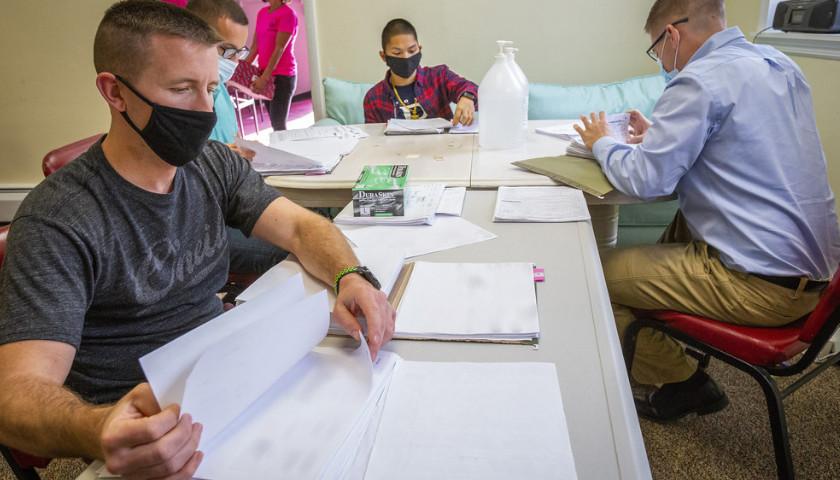by Nyamekye Daniel
Republican Georgia lawmakers increased their push for election changes Friday ahead of the Jan. 5 runoff elections for U.S. Senate.
House Majority Leader Jon Burns (R-Newington) (pictured) sent a second letter to Secretary of State Brad Raffensperger on Friday asking him to respond to an initial letter calling for two specific changes to the election process.
“Time is of the essence,” Burns wrote in Friday’s letter. “We are facing a pivotal election for our state. Georgians must have confidence in our elected officials to securely and efficiently carry out an election in which all legal votes are counted and no illegal votes are counted.”
More than 100 current and future House representatives signed a letter sent to Raffensperger and the state election board last week. It urged election officials to require counties to allow independent observers from both parties to be involved in the signature verification process for absentee ballots and deploy additional staff from other state agencies or contracted workers to oversee the elections.
Both of Georgia’s U.S. Senate seats are up for grabs in runoff elections Jan. 5. Republican incumbent U.S. Sen. David Perdue faces Democrat challenger Jon Ossoff, and Democrat Raphael Warnock is challenging Republican incumbent U.S. Sen. Kelly Loeffler. Those races will determine which party holds the majority in the U.S. Senate moving forward.
The lawmakers’ call for change coincides with ongoing claims and investigations of voter fraud in Georgia. The secretary of state’s office and the Georgia Bureau of Investigation are investigating more than 250 voter fraud claims, including 132 from the general election, officials said. Gabriel Sterling, the state’s voting system implementation manager, said Thursday only a small percentage of the claims are related to absentee ballots.
Election officials said deploying employees from other state agencies to observe election activities likely would be of limited benefit unless they have training equivalent to the years of experience of a veteran poll manager.
President Donald Trump and his supporters have fought to block the certification of the state’s general election results based on allegations of voter fraud. The General Assembly has held three hearings this month filled with testimony from poll and election workers, security and data experts and voters, many of who signed affidavits alleging election misconduct.
Senate Republicans said they plan to continue the election hearings through Jan. 5 to “ensure fraud and misconduct do not taint the next election.” They also plan to file legislation to eliminate at-will absentee voting and reform the absentee ballot verification process.
When an absentee ballot request form is received via mail by county election offices, workers compare the signature on the request form to the voter’s signature on file. The state’s online portal for absentee ballot requests requires voters to use their driver’s license number to confirm their identity, officials said. The ballot is returned in a discreet envelope that voters sign, agreeing to an oath.
A report from the secretary of state’s office showed the rejection rate for signature issues was 0.15% in the 2018 and 2020 general elections. Elected officials rejected 2,011 out of 1.3 million absentee ballots in the November 2020 election because of signatures issues. In November 2018, 454 out of 284,393 absentee ballots were rejected.
Election officials said public observers already are allowed to monitor the election process, but only sworn election workers physically can handle ballots, according to law. Poll watchers are prohibited from interfering with election workers’ activities and can voice their objections to only the county election superintendent.
The secretary of state’s office has expressed interest in working with lawmakers to strengthen the elections process, but federal law and the courts may have to play a bigger role in reform.
– – –
Nyamekye Daniel is a journalist with The Center Square.





